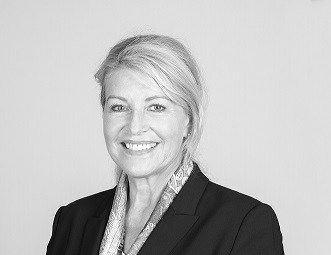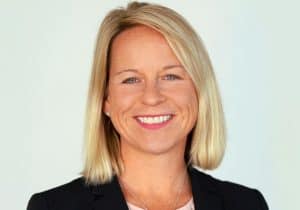
Working Life Interview: Kim Stratton, CEO, Orphazyme
pharmafile | May 4, 2020 | Feature | Business Services, Manufacturing and Production, Medical Communications, Research and Development, Sales and Marketing | Interview, Orphazyme, Working Life
“Every professional faces challenges. As a woman in industry, particularly in leadership, it adds another dimension to those challenges in how you present yourself.”
How did you take your first steps into the industry, and was it always what you wanted to do in your career?
I started out as a medical representative for Glaxo in Sydney and London, and moved into marketing with Bristol Myers Squibb (BMS), where I spent almost 10 years in cardiovascular, oncology and HIV marketing. It was a great training ground right at the start of my career.
Your journey has taken you through some of the biggest names in the industry. Can you give us a brief overview of how you got to where you are today?
Following Glaxo and BMS, I had a brief stint at AstraZeneca as Head of Respiratory in the UK, before 15 years at Novartis in the UK, Switzerland, US, and Portugal. This was a rich training and development ground, with different global roles, including Global Head Respiratory and Dermatology Franchises, Head Corporate External Affairs, and various commercial roles, US Head of Franchise and General Manager for a country.
For the last six years, I was at Shire, where I led all the ex-US business, with circa $6 billion revenue and 20 marketed products. Approximately 90% of the business came from rare disease orphan drugs, and that is particularly relevant for my role here. At Orphazyme we are developing treatments for neurodegenerative orphan diseases, pioneering the heat shock protein response. What we are doing has the potential to profoundly impact the lives of patients and their families, and I am very proud to be a part of the team.
Have you always felt more at home on the commercial side of the business? Was this always the side of the industry that attracted you?
What inspires me is the ability to work across all areas of the business, which is what I do as CEO of Orphazyme. My role is multi-functional and multi-cultural and now we are setting up the US organisation and our international footprint, so the role is becoming broader.
Do you think you have faced unique challenges getting to where you are now as a woman in the industry?
I think it just adds another dimension. Every professional, when they are going through personal and professional growth, faces challenges. As a woman in industry, particularly in leadership, it adds another dimension to those challenges in how you present yourself, get good advice, and coaching. What’s great now is that there are more women in leadership positions who can serve as role models, mentors, and coaches for our aspiring next generation of women.
Do you think more needs to be done to ensure the best talent, regardless of gender, is given the opportunity to rise to the top in this industry?
Absolutely – we need to be able to attract the best people, inclusive of style, gender, and preferences. As we grow our company’s footprint, diversity is essential as we branch out from being a Copenhagen-based research and development organisation to more of a global business organisation.
What attracted you to your current role at the helm of Orphazyme? How have you found the role so far?
Orphazyme has one of the most prolific late-stage pipelines – focused on orphan neurodegenerative diseases such as Niemann-Pick disease Type C (NPC), amyotrophic lateral sclerosis, sporadic inclusion body myositis, and Gaucher disease – all of which have a huge unmet need. Our product – arimoclomol – is unique; the first heat shock protein amplifier. The team – our Chief Scientific Officer (CSO), Dr Thomas Kirkegaard Jensen – is the discoverer of the heat shock protein response and improved lysosomal function. And lastly, yes, to be the CEO for the next exciting chapter for Orphazyme and to be part of the team that hopefully brings this exciting innovation to many patients around the world.
What is it about the pharma/life sciences industry that first attracted you and continues to do so?
It’s all about health and wellbeing. A great purpose mixing science and business, lots of opportunity for professional and personal growth.
Having worked at front-line names like Novartis, BMS, AstraZeneca and Shire, among others, do you think you’ve lived through a diverse range of company cultures and best practices, or do they function similarly from a leadership perspective?
I would say each company is different and has its own individual attributes, and that yes, I have experienced a broad range of cultures in the industry, though they also have many things in common.
All of these have contributed to my current role – in a way, you could call it the sum of everything up until now as it contains elements of what I learnt at those companies. I love the purpose of Orphazyme – pioneering heat shock protein response for the treatment of neurodegenerative orphan diseases. And our values really connect to me: courage, perseverance, integrity, and care.
What do you think are the most valuable lessons you’ve assimilated during your time at these companies?
Aspire to be a high-performing team – high standards, sense of urgency, passion, and deeply caring about the people and our patient community.
What stands out to you as one of your proudest achievements throughout your career?
I don’t really look at my career as something to be proud of for its own sake. I think it is much more relevant to focus on the achievements to come that I would be most proud of.
Speaking at this moment in time, I would love to be able to list as an achievement that Orphazyme has delivered on its promises. Specifically, this means filing for approval of arimoclomol for NPC in the US in the first half of 2020 and bringing it to market, continuing development in other indications, and building a high-performing team who are committed to our purpose of giving hope to patients.
Related Content

Working Life Interview: Fiona Huzarski, Vice President of Global HR, ADVANZ PHARMA
“Every company is different, so you have to be open-minded and receptive to the culture …

What can previous outbreak modeling tell us about the COVID-19 pandemic?
Dr LaRee Tracy, a lecturer at San Diego State University and Director of Biostatistics at …

Patient Experience: Living with type 1 diabetes
23-year-old US student Madelyn Lazra recently graduated with a BA in Business Law and certification …








